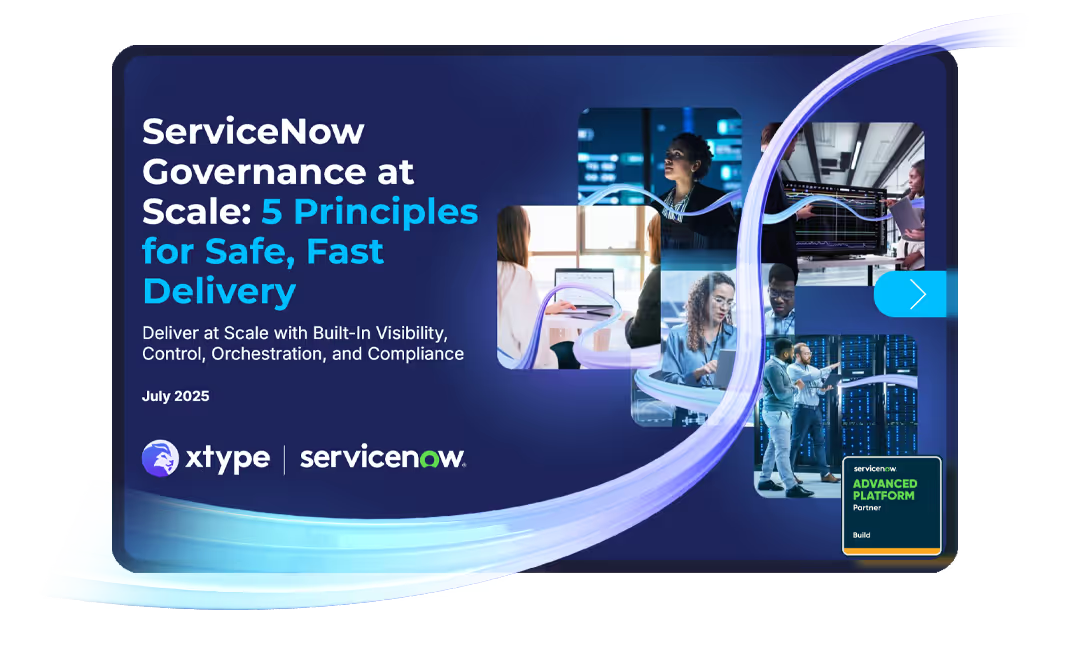The High Price of High Expectations

Introduction
In today's fast-paced business environment, organizations constantly seek to improve their processes and stay ahead of the competition. As a result, business leaders often place high expectations on their ServiceNow teams to deliver innovative solutions quickly and efficiently. With this pressure and lower headcount, many companies highly compensate their employees to perform at their best. Ironically, the workload accompanying this pressure can contribute to high turnover rates and negatively impact the organization's overall success.
Burnout & Turnover
One of the critical reasons why high expectations for innovation can contribute to employee turnover is burnout. ServiceNow teams are often responsible for executing against a backlog that continually grows despite the significant time and effort spent to attack the back-ordered demand. When business leaders place unrealistic expectations on these teams to deliver innovation quickly and efficiently, employees may feel overwhelmed and overworked. These unrealistic expectations can lead to burnout, where employees become physically, emotionally, and mentally exhausted.
Burnout can cause employees to feel disengaged from their work and may ultimately lead them to leave the organization in search of a better work-life balance. Exiting employees are not always switching employers to achieve a better work-life balance. The "great resignation" phenomenon sees people opting to retire early, start their own business, or inexplicably accept a lower standard of living to avoid high-stress jobs.
Recognition & Retention
Another factor contributing to high turnover rates is a need for more recognition and support from leadership. When employees work hard to deliver innovative solutions but do not receive recognition or support from their leaders, they may become frustrated and disengaged. This lack of recognition can make employees feel undervalued and unappreciated, contributing to turnover. This feeling of being undervalued can be especially poignant for ServiceNow teams whose modus operandi is to work on their weekends, evenings, and holidays.
A culture of constant change can have a high cost on employee productivity and lead to apathy, burnout, and, ultimately, employee turnover. I have seen companies initiate and reinitiate the same strategic initiative over successive fiscal years, causing tech employees to redo the same work they completed the previous year but with a different tool suite. Annually reinventing the wheel, so to speak, fatigues employees and fissures the relationship between management and employee. Additionally, constant change can make employees feel uncertain about their roles and responsibilities, ultimately contributing to turnover.
Business Improvement
Business leaders must recognize their people's hard work and contributions and provide them with the necessary support and resources to succeed. Including employee well-being, recognition, and work-life balance as part of your workstream calculation should help improve employee retention. Business leaders should set realistic expectations for their teams and provide them with clear definitions of what success looks like. Regular training and professional development opportunities should also be included to help employees stay up-to-date with new technologies and best practices. It also means recognizing and rewarding employees' hard work and creating a positive work culture that supports their well-being.
Another important strategy for reducing turnover is to create a sense of stability and consistency. This strategy can be achieved by providing employees with clear roles and responsibilities and ensuring they have the necessary resources and support to perform their jobs effectively. It also means minimizing unnecessary disruptions and changes, providing employees with clear criteria for measuring success at the end of the year, and providing a clear roadmap for career development within the organization.
Conclusion
In conclusion, while high expectations for innovation can motivate ServiceNow teams to perform at their best, it can also contribute to high turnover rates and negatively impact the organization's success. To reduce turnover and ensure the success of IT teams, organizations must prioritize employee success, provide the necessary resources and support, recognize and reward hard work, and create a stable and consistent work environment. By doing so, organizations can create a positive work culture that supports the growth and development of your professionals and ultimately contribute to the organization's success.






